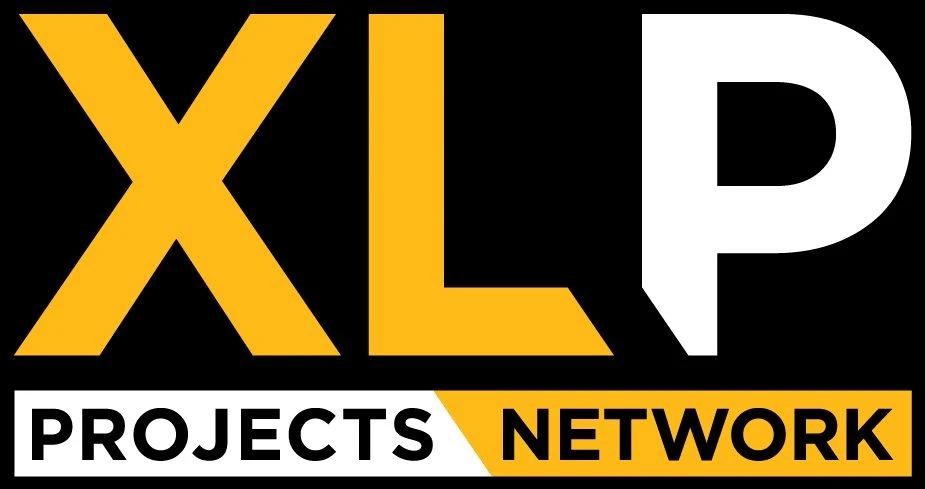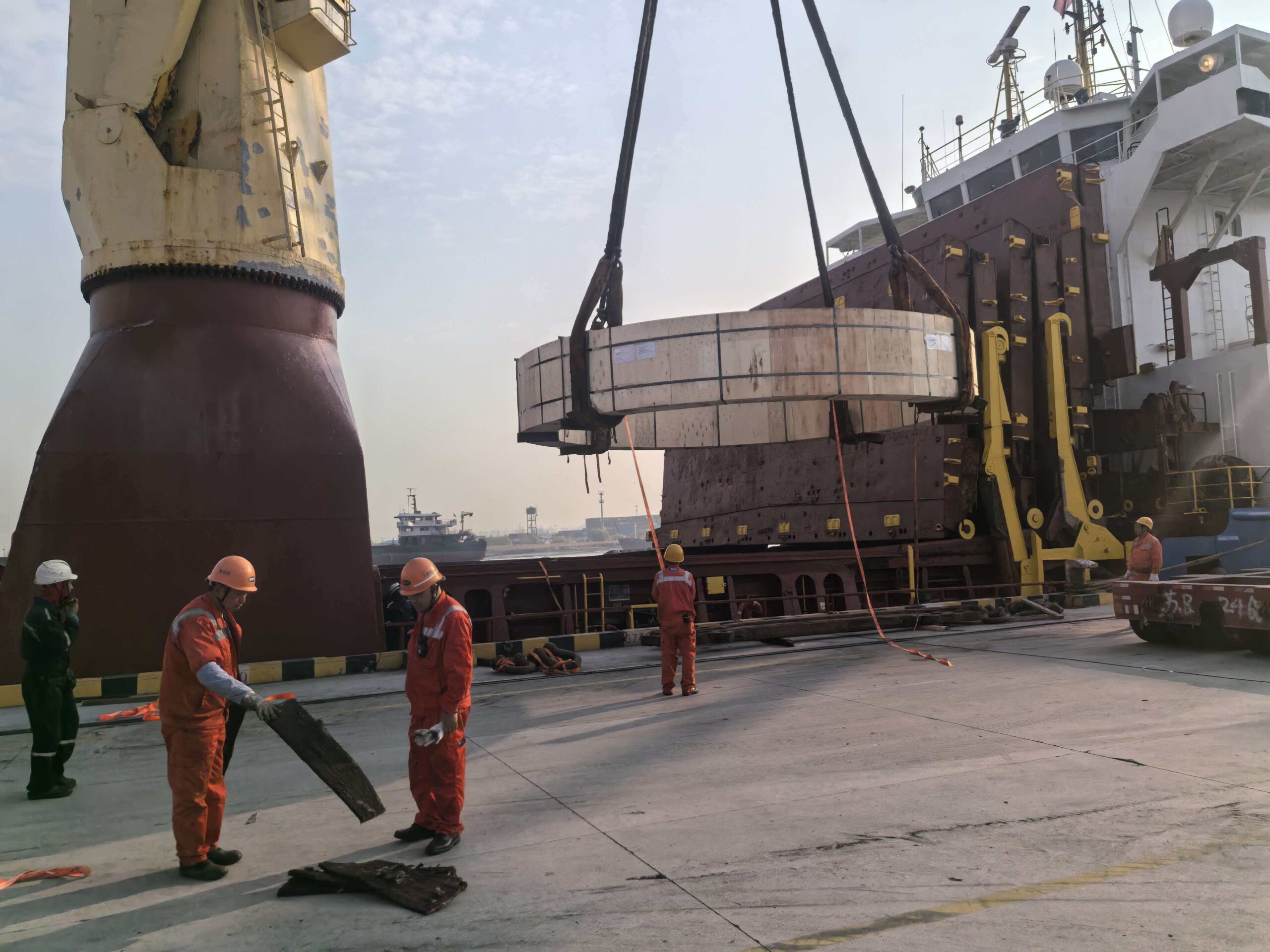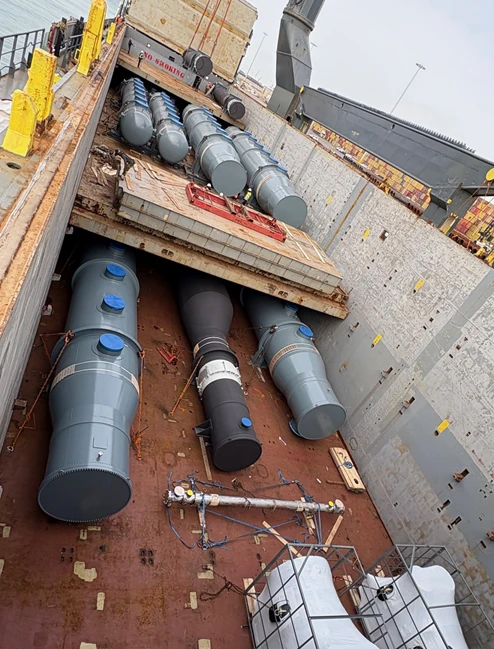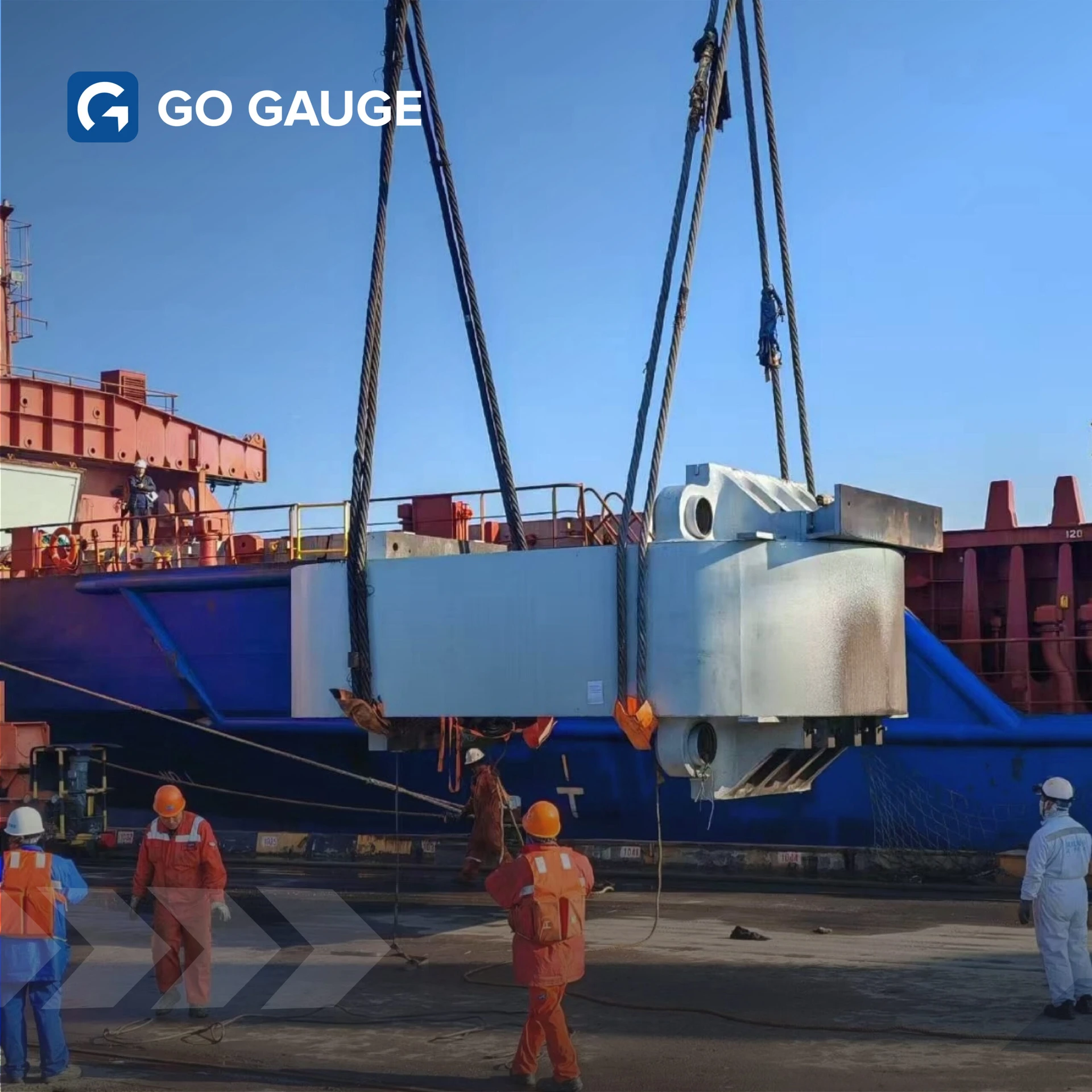
First of all, can you elaborate a bit on your background getting into logistics originally — when, who, and why?
I’ve been deeply involved in logistics for over 35 years, and it all started back after I joined the U.S. Navy at 18. Growing up in Prescott, Arkansas, I was always curious about the world, but it wasn’t until my time in the Navy that my interest in international business and travel really took off. Freight forwarding became the perfect path for me to explore that passion, allowing me to work globally and build connections across different cultures.
My professional journey began in the 1980s when I had a brief stint at ClearFreight, followed by a role with Japan Freight Consolidators in Los Angeles, now known as Hankyu Express. Not long after, I found myself in Korea, working with the Korea Overseas Trade Corporation (KOTRA) and doing some outside contracting for American Presidents Line (APL) in Seoul. During this time, I also contributed to the Korea Economic Journal.
In 1991, I made the move to Vietnam, first joining BridgeCreek International and shortly after, Danzas, where I worked in Ho Chi Minh City as a sales representative for international freight and logistics services. Back then, Danzas was the world’s largest freight forwarder, and though the company later merged with DHL, I spent my time there growing my expertise. In 1995, I became a branch representative for Danzas in Hanoi, but my ambition led me to new ventures across Southeast Asia.
In the late 90s, I founded my own freight forwarding company in Hanoi, International Logistics Management, which operated under the name ILM Vietnam Transport. We were proud to be the first to receive a 100% foreign-invested freight forwarding license in Vietnam in 1998. ILM became a key player in the region, and we were connected to then major global networks like the Hi-Tech Forwarder Network (HTFN), the International Forwarding Association (IFA). Also, we held the franchise for Allied Pickfords in Vietnam. I also served as a board member for both HTFN and the World Wide Projects Consortium (WWPC) at the time.
One of the highlights of my career so far was securing two of the three onshore packages for the Nam Con Son Gas Pipeline project, which was then the largest industrial project in Vietnam, owned by British Petroleum (BP). At our peak, we had 190 employees across offices in Hanoi, Ho Chi Minh City, Vung Tau, and even a cargo-focused office in Phnom Penh, Cambodia.
In 2004, I sold the company to my business partners in Singapore, and by 2007, I made my next move to Thailand.
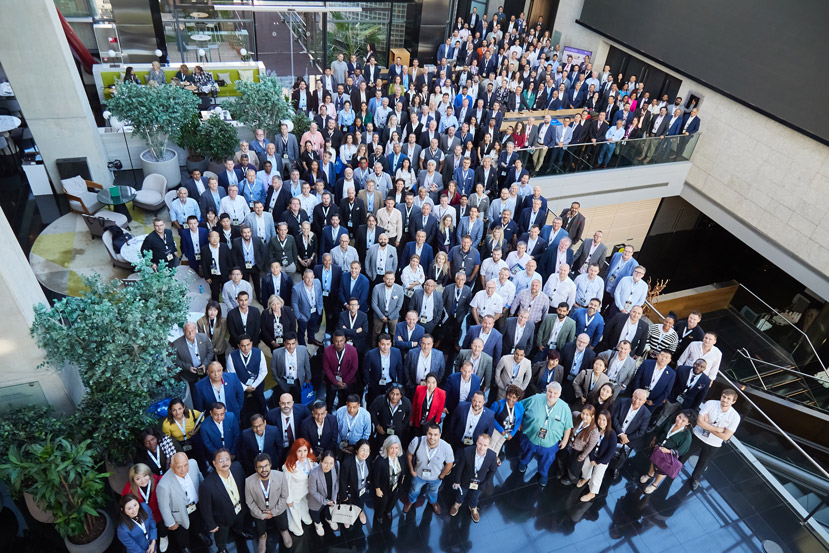
How many years have you lived in Asia by now? What gave you the idea to become a professional in freight forwarding networks?
As I mentioned, I’ve spent over three and a half decades living and working in Asia, having first made my way to the region after cutting my teeth in the logistics trade in Los Angeles. My early experiences in South Korea and Vietnam were pivotal in shaping my career and gave me a deep understanding of international logistics.
My passion for international trade and business networking naturally led me toward freight forwarding networks. I witnessed Vietnam’s economic transformation as it opened up to global markets. Remember, I was around when President Bill Clinton dropped the trade embargo, and later when VIetnam ascended to the WTO. Through all that, I saw the enormous potential within the logistics sector like I had not seen it before. This realization pushed me to eventually establish and manage several logistics networks. My first major venture, which I founded in 2002, was AerOceaNetwork (AON), which connects freight forwarding companies worldwide, helping them collaborate and expand internationally.
I did partner with a well-known network owner to launch another network, which for this interview will remain unnamed, but we didn’t quite see eye to eye when it came to financial protections. That network is still around today, and it’s actually why my holding company has the name it does.
In 2004, I co-founded the Global Project Logistics Network (GPLN) and served as its managing director. By the time I sold my shares in 2012, GPLN had grown into the largest project logistics network in the world. We were trailblazers in several sales techniques that have now become standard practice in the industry.
In 2015, we merged some of our specialty networks—Perishables Logistics Specialists Network (PLSN) and AON Removals Network (AONr)—into a new group called All-in-One Logistics Network (AiO). I’d love to take the credit for this, but the idea was actually the brainchild of my business partner, Daniel Bateman. AiO is a multi-specialty group with divisions in commercial cargo, project cargo, perishables, removals, and exhibition logistics. Earlier this year, we launched two more groups: a project cargo network called Mega Move Alliance (MMA) and a commercial cargo network, Seahawk Logistics Network (SLN). Both are healthy and growing steadily.
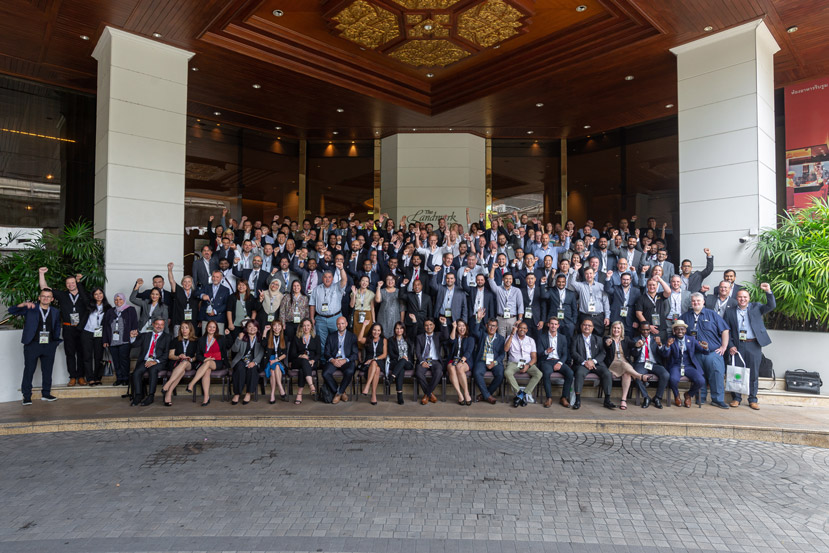
What can you tell our readers about XLP? There are many networks out there. We are constantly bombarded, I believe, with “networks” in China claiming thousands of members, asking you to sign up. How do you see this and how do you ensure that XLP stands out?
XLProjects is a standout network in the project cargo and freight forwarding industry, known for its focus on quality and real partnerships. Unlike networks that chase numbers with thousands of members and questionable vetting, we’re all about building a tight-knit community of reputable, dependable logistics professionals.
At XLP, we don’t just let anyone in. Our vetting process is tough because we believe in high standards of professionalism and operational capability. It’s in stark contrast to some other networks out there that barely check who they’re letting in, which leads to unreliable service. We value quality relationships over quantity, and that’s what makes us different. When our members collaborate on complex projects, they know they can trust each other.
Our members also benefit from being part of a community that genuinely shares knowledge, best practices, and resources. It’s a collaborative environment in which people help each other navigate the challenges in the logistics world. While we have a global reach, we make sure that local expertise is always available, striking a balance between having global resources and understanding the intricacies of local markets.
XLP specializes in project cargo, which is no easy task. It requires careful planning and precise execution, and our members are well-prepared to meet those challenges.
Let’s be honest: the commercial cargo network industry has gotten a little out of hand. I’ve lost count of how many networks out there claim to have massive memberships, especially the ones based in China. Freight forwarders complain about it, but they still sign up for membership.
After being in this industry for as long as I have, I can’t help but feel embarrassed for these forwarders. Some of these said networks, with their boiler room sales tactics, claim to have tens of thousands of members, and we all know that’s a lie. Yet, people still join. The networks dangle quick and easy memberships in front of you, and if you’re not ready to commit, no worries—you can still attend their meetings, even though other members have already paid for membership rights in your market.
There’s no real vetting. How do I know? They approach me through my network emails, pushing me to join, not even taking the time to notice that they are contacting networks, not forwarders. I even have another logistics company I own that’s never signed up for any of these networks. Yet, it’s listed as a member of three China-based networks and one from India. They’re even listing one of my former staff members (who hasn’t worked for me in nearly eight years) as our company rep, when he wasn’t even in that position when he was working for us! It’s clear they don’t know what quality is—and worse, they don’t care.
That’s why I’m proud to say that XLP takes a different path. We’re selective about who joins, and we foster real connections among our members. This not only boosts operational efficiency but also builds the kind of long-term relationships that are crucial for success in logistics.
To sum it up, XLP’s commitment to quality, rigorous vetting, and a truly supportive community make it a valuable network for professionals in the freight forwarding and project cargo sectors. We don’t chase quantity—we prioritize quality, and that’s what sets us apart.’
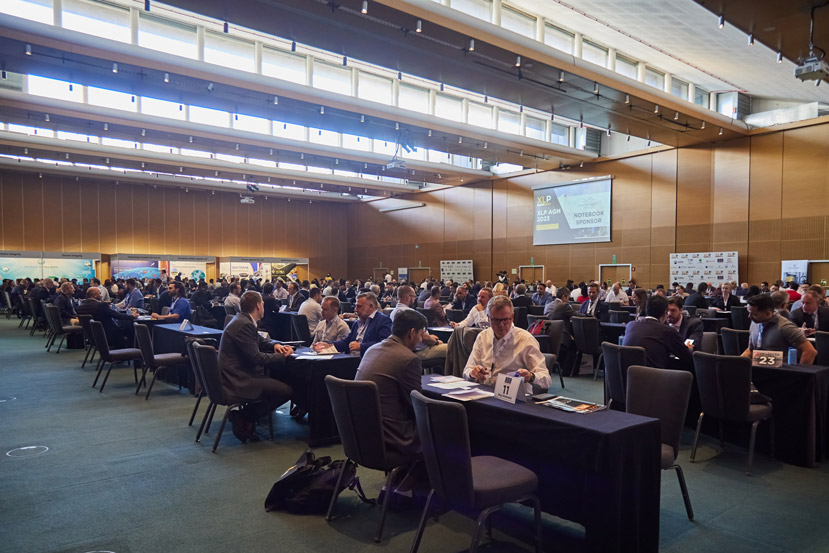
What are the main benefits of joining a network in your view?
Joining a project logistics network brings a range of benefits that can really boost business operations and help companies grow in an increasingly competitive industry. One of the biggest advantages is access to a global network. When you become a member, you’re instantly connected to a community of freight forwarders and logistics professionals from all over the world. This kind of reach opens the door to new partnerships, clients, and suppliers in different regions, making international trade and collaboration much easier.
Another great benefit is the business opportunities that come with being part of a network. Networks always host annual general meetings (AGMs) and other events, both virtual and in-person, where members can connect and engage with each other. These interactions naturally lead to new business, referrals, and partnerships. In fact, some of the best opportunities I’ve come across have come out of spontaneous networking moments. You never know what leads might pop up when you’re part of the right group.
There’s also the support system that many networks offer. Things like payment protection programs, and financial monitoring tools help manage the risks that come with international logistics. These systems make transactions smoother and less stressful.
On top of that, reputable networks, like XLP, implement rigorous vetting processes to make sure their members are professional and reliable. This level of quality assurance builds trust among the members, which is essential for collaborating on complex projects.
Another perk of network membership is the increased visibility it gives your company. For instance, we provide marketing support through newsletters, social media exposure, and promotional opportunities. This can help you attract new clients and raise your profile in the market.
Finally, being part of a network allows for resource sharing. You’re in a collaborative environment where members share best practices, industry news, and operational resources. It’s a great way to learn from others’ experiences and improve your own operations.
In short, joining a project logistics network can give your company the tools and connections it needs to expand its reach, improve operations, and navigate the complexities of global logistics.
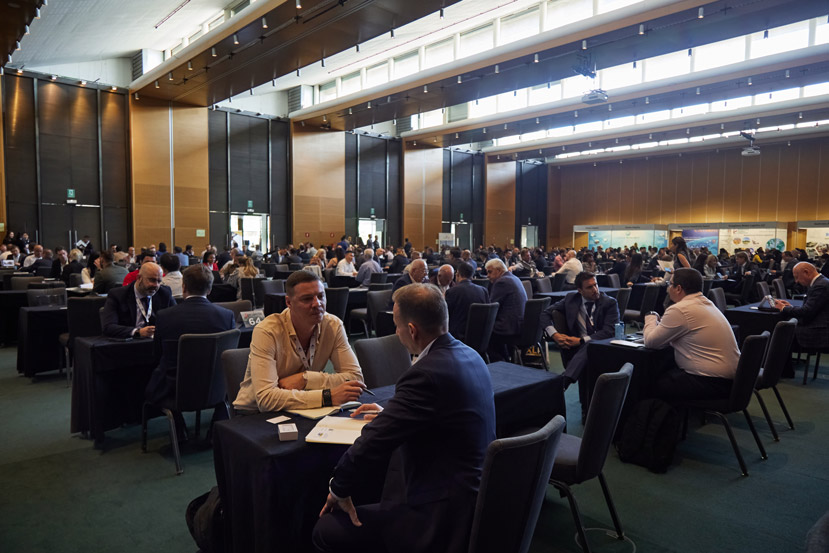
If we look into the future, we see that freight forwarders are being pressured (at least to some extent) by shipping lines who wish to encroach on their “domain”. How do you as a person running networks view this?
The growing presence of shipping lines in areas traditionally handled by freight forwarders is something I’ve been watching closely. As a leader in project logistics networks, I see this shift as both a challenge and an opportunity for our industry. In the past decade, there has been a very concerted effort to push some of the container lines into direct competition with the breakbulk carriers, and in that way it has been very interesting to see.
Shipping lines are starting to connect directly with forwarders’ customers, which sidesteps the role of the freight forwarder. This can potentially weaken our position as intermediaries, where we add critical value in areas like customs clearance, documentation, and logistics expertise. The direct access shipping lines now have to shippers allows the shipping lines to be more competitive on pricing, which can put pressure on freight forwarders to lower their rates. Naturally, that can affect profitability.
In fact, this has been kind of like a bitter circle with the forwarders and shipping lines. The shipping lines look to how they want to grow their markets and gradually buy forwarding companies. They offer services that are traditionally offered by freight forwarding companies, then find out they can’t always do what forwarding companies can do, and when they can, it needs to be specialized for huge clients, but not fitting for most clientele. They realize then that they need the forwarder.
But there’s an opportunity here too. Shipping lines may expand their services, but freight forwarders almost always have an edge in offering tailored, complex logistics solutions—especially when it comes to things like handling specialized project cargo or navigating intricate supply chain challenges. That’s where we really shine.
In networks like XLProjects, we encourage collaboration among members, pooling resources, knowledge, and best practices. This collective strength makes us more competitive against the larger shipping lines. Freight forwarders also have something that shipping lines struggle to match: the ability to build and manage close, long-term relationships with customers. Personalized service is where we excel, and by focusing on that, we can keep a competitive edge.
Yes, the pressure from shipping lines is real, but I believe it’s also pushing the freight forwarding industry to innovate. If we embrace technology, broaden our service offerings, and lean into our strengths in customer service and logistics management, we can not only hold our ground but also thrive as the landscape evolves.

How many members have you got around the world?
We’ve built a strong network with nearly 300 members spread across over 100 countries and more than 180 markets. No matter where the project is—whether it’s a major regional hub or a local market—we’ve got it covered.
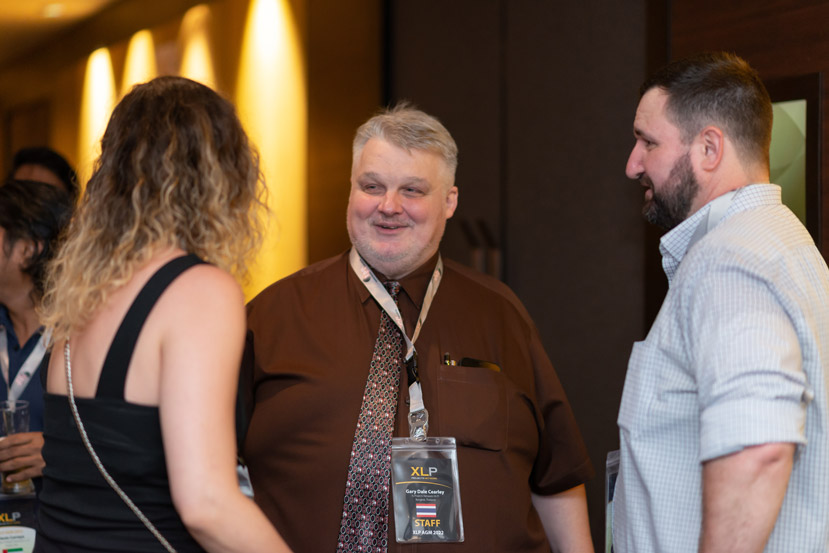
How is it best for our readers to reach you?
You can always reach me by email at G.D.Cearley@XLProjects.net or on my mobile at +66 86 571 6040, whether by call, WhatsApp, or Telegram. However, if you’re interested in learning more about XLP membership, Steve Cross is your go-to. He’s professional, dedicated, and ready to answer any questions you might have. You can contact him at Steve.Cross@XLProjects.net or on his mobile at +66 83 244 2360 (also on WhatsApp).
Source: https://www.projectcargo-weekly.com/2024/10/02/xlprojects-xlp-bangkok-thailand/
